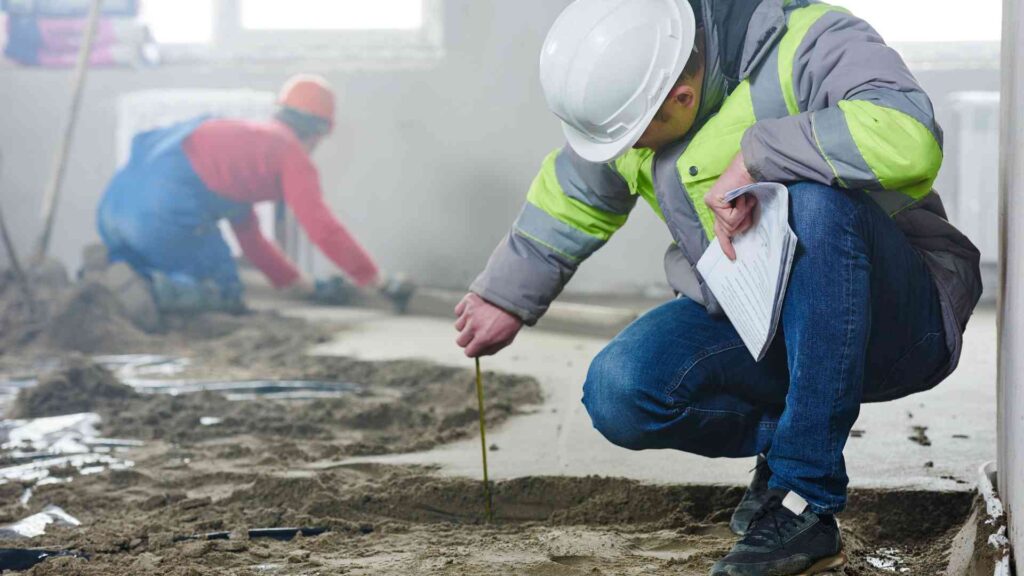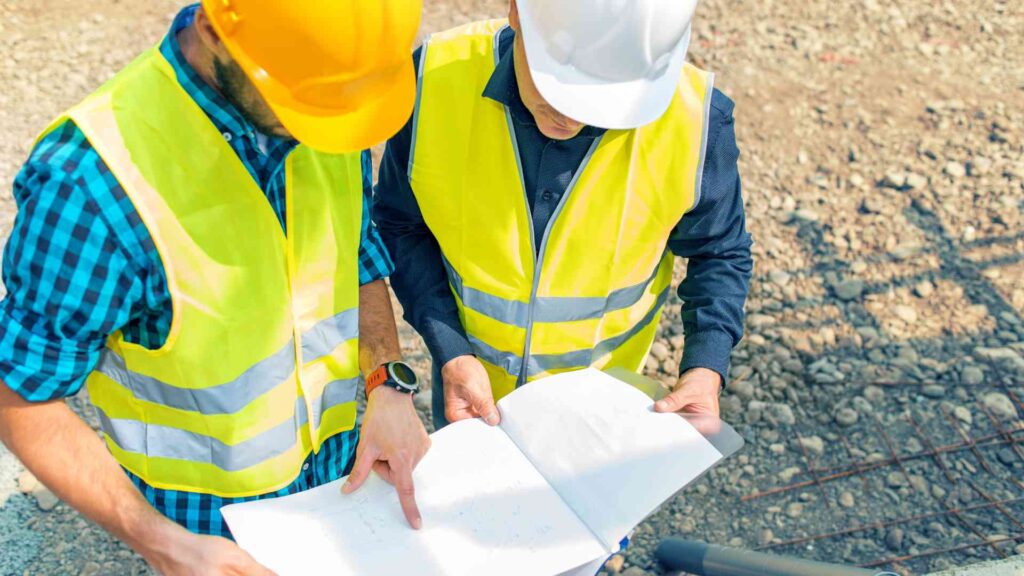Concrete driveways are a popular choice for homeowners in Arizona due to their durability and ability to withstand the harsh climate. However, in order to keep your driveway looking its best and prevent costly repairs, regular maintenance is essential. In this article, we will explore the unique challenges of Arizona’s weather and how it affects concrete, as well as provide tips on choosing the right materials and implementing regular maintenance practices. We will also discuss when it’s necessary to call a professional service for your concrete driveway maintenance needs.
Understanding Arizona’s Climate and Its Effects on Concrete
Arizona’s climate is known for its extreme temperatures, intense sunlight, and occasional heavy rainfall. These weather conditions can have a significant impact on the lifespan and appearance of your concrete driveway.
The Unique Challenges of Arizona’s Weather
One of the unique challenges of Arizona’s weather is the combination of high temperatures and low humidity. The hot and dry climate can cause concrete to expand and contract, leading to cracks and other forms of damage.
During the summer months, Arizona experiences scorching temperatures that can reach well above 100 degrees Fahrenheit. This extreme heat can cause the concrete to expand, putting stress on its structure. As the temperature cools down in the evening, the concrete contracts, creating tension. Over time, this continuous expansion and contraction can result in cracks and fractures.
In addition to the high temperatures, the low humidity levels in Arizona exacerbate the effects of the heat on concrete. The lack of moisture in the air causes the water within the concrete to evaporate quickly, leading to accelerated drying and hardening. This rapid drying process can make the concrete more susceptible to cracking and shrinking.
How Heat and Sunlight Impact Concrete
The intense heat and sunlight in Arizona can cause the surface of your concrete driveway to become discolored and faded. Over time, this can make your driveway look worn and weathered.
When exposed to prolonged sunlight, the ultraviolet (UV) rays can break down the chemical bonds in the concrete, causing it to lose its original color and become dull. This process, known as photochemical degradation, not only affects the appearance of the concrete but also weakens its structural integrity.
Furthermore, the heat from the sun can cause the moisture within the concrete to evaporate rapidly, leading to a phenomenon called plastic shrinkage. This occurs when the surface of the concrete dries out faster than the interior, resulting in surface cracks and a weakened surface layer.
The Role of Rain and Humidity
While Arizona is known for its arid climate, when it does rain, the sudden changes in temperature and moisture levels can also take a toll on your concrete driveway. Excessive rain and humidity can cause the concrete to absorb water, leading to cracks and even structural damage.
During the monsoon season, Arizona experiences heavy rainfall in a short period. The sudden influx of water can seep into the pores of the concrete, causing it to expand rapidly. This expansion can put pressure on the surrounding areas, leading to cracking and spalling.
Additionally, the high humidity levels during the monsoon season can prolong the drying time of the concrete. The excess moisture in the air slows down the evaporation process, which can result in prolonged curing times and weaker concrete. This extended curing period increases the risk of surface defects and reduces the overall strength of the concrete.
It is important to note that while Arizona’s climate poses challenges for concrete driveways, proper installation techniques and regular maintenance can help mitigate these issues. Applying a protective sealant, providing adequate drainage, and avoiding direct sunlight exposure can all contribute to extending the lifespan and preserving the appearance of your concrete driveway in Arizona’s unique climate.
Choosing the Right Materials for Your Concrete Driveway
When it comes to maintaining your concrete driveway in Arizona, choosing the right materials is crucial. High-quality concrete and protective sealants are key factors in ensuring the longevity and resilience of your driveway.
The Importance of High-Quality Concrete
Using high-quality concrete when installing or repairing your driveway can make a significant difference in its durability and ability to withstand Arizona’s harsh climate. Quality concrete is less prone to cracking and other forms of damage.
High-quality concrete is made with a precise mix of cement, aggregates, and water. The proportions of these ingredients are carefully calculated to ensure optimal strength and durability. Additionally, the use of additives such as fly ash or silica fume can further enhance the performance of the concrete.
Furthermore, the curing process of the concrete is crucial in achieving its maximum strength. Proper curing involves keeping the concrete moist and at the right temperature for an extended period. This allows the concrete to develop its full strength and resistance to cracking.
Protective Sealants for Concrete Driveways
Applying a protective sealant to your concrete driveway can help protect it from the damaging effects of Arizona’s weather. Sealants provide a barrier against moisture, UV rays, and chemical spills, helping to maintain the appearance and structural integrity of your driveway.
There are various types of sealants available for concrete driveways, including acrylic, epoxy, and penetrating sealants. Acrylic sealants form a protective film on the surface of the concrete, providing excellent resistance to water and UV damage. Epoxy sealants, on the other hand, penetrate the concrete and create a strong bond, offering superior protection against chemical spills and stains. Penetrating sealants, as the name suggests, penetrate deep into the concrete, providing long-lasting protection without altering the appearance of the driveway.
Before applying a sealant, it is important to thoroughly clean the driveway to remove any dirt, oil, or stains. This can be done using a pressure washer and a concrete cleaner specifically designed for driveways. Once the surface is clean and dry, the sealant can be applied using a quality sealer applicator, ensuring even coverage and maximum protection.
Tools and Equipment for Concrete Maintenance
Having the right tools and equipment is essential for proper concrete driveway maintenance. This may include a pressure washer, broom, concrete cleaner, crack filler, and a quality sealer applicator. Investing in these tools will make the maintenance process easier and more effective.
A pressure washer is an invaluable tool for removing dirt, grime, and stains from the surface of the concrete. It uses high-pressure water to deep clean the driveway, leaving it looking fresh and rejuvenated. A broom is also useful for regular sweeping to keep the surface free from debris and prevent scratches caused by abrasive particles.
In the event of cracks or damage, a concrete crack filler can be used to repair the affected areas. This filler is specifically designed to bond with the concrete and provide a seamless repair. Once the repairs are complete, applying a sealant will help prevent further damage and maintain the overall integrity of the driveway.
By investing in the right tools and materials, and following proper maintenance practices, you can ensure that your concrete driveway in Arizona remains in excellent condition for years to come.
Regular Maintenance Practices for Your Concrete Driveway
Implementing a regular maintenance routine for your concrete driveway is essential for preserving its appearance and extending its lifespan. By following these maintenance practices, you can ensure that your driveway remains in optimal condition for years to come.
Cleaning Your Concrete Driveway
Regularly cleaning your concrete driveway helps remove dirt, debris, and stains that can accumulate over time. Not only does this improve the overall appearance of your driveway, but it also prevents the buildup of substances that can cause damage. Use a pressure washer or a hose with a high-powered nozzle to thoroughly clean the surface, ensuring that you reach all areas, including the corners. Additionally, scrubbing the concrete with a mild detergent and a stiff-bristle brush can help remove tough stains, such as oil spills or tire marks. Take the time to pay attention to any specific problem areas and give them extra attention to ensure a thorough cleaning.
Furthermore, it is important to note that different types of stains may require specialized cleaning methods. For example, rust stains can be treated with a mixture of lemon juice and salt, while grease stains may require the use of a degreaser. Researching and implementing the appropriate cleaning techniques for specific stains will help you achieve the best results.
Sealing Your Concrete Driveway
Applying a new coat of sealant every few years is recommended to protect your concrete driveway from the elements. Sealants act as a barrier, preventing moisture, chemicals, and other substances from penetrating the surface and causing damage. Before applying the sealant, make sure the surface is clean and free of any cracks or damage. This ensures that the sealant adheres properly and provides maximum protection.
When selecting a sealant, consider factors such as the climate in your area and the level of traffic your driveway receives. There are various types of sealants available, including acrylic, epoxy, and penetrating sealers. Each type offers different benefits and durability, so choose the one that best suits your needs. Follow the manufacturer’s instructions for the application process, ensuring that you apply an even coat and allow sufficient drying time.
Addressing Cracks and Damage Promptly
Cracks and other forms of damage should be addressed promptly to prevent further deterioration. Small cracks can be filled with a concrete crack filler, which helps prevent water from seeping in and causing more significant problems. It is important to note that different types of crack fillers are available, including liquid fillers and solid fillers. Choose the appropriate filler based on the size and severity of the crack.
For larger or more severe damage, it is advisable to seek professional repair services. Professional contractors have the expertise and equipment to assess the extent of the damage and provide appropriate solutions. They may use techniques such as concrete resurfacing or patching to restore the integrity of your driveway. Regularly inspecting your driveway for signs of damage, such as cracks, potholes, or uneven surfaces, and addressing them promptly will help avoid costly repairs in the future.
In conclusion, regular maintenance practices are crucial for ensuring the longevity and appearance of your concrete driveway. By cleaning it regularly, applying sealant, and addressing any cracks or damage promptly, you can enjoy a beautiful and functional driveway for years to come.
Professional Services for Concrete Driveway Maintenance
While regular maintenance is an important part of caring for your concrete driveway, there are instances where professional services may be necessary.
When to Call a Professional
If you are unsure about how to properly maintain your concrete driveway or if you notice significant damage that requires expert attention, it is best to call a professional service. They have the knowledge, experience, and specialized tools to assess and address any issues.
What to Expect from a Professional Service
When hiring a professional service for concrete driveway maintenance, you can expect a thorough inspection of your driveway, expert advice on the best course of action, and quality repairs if needed. They will ensure that your driveway is in optimal condition and provide recommendations for ongoing maintenance.
By understanding and addressing the unique challenges of Arizona’s climate, choosing high-quality materials, implementing regular maintenance practices, and seeking professional services when needed, you can ensure that your concrete driveway withstands the test of time and remains a durable and attractive feature of your home.


